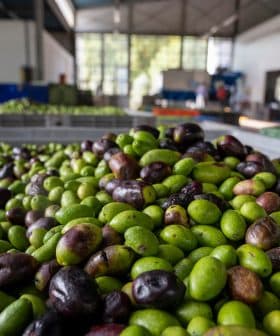New Study Delves Into Mechanisms Behind MedDiet's Health Benefits
Researchers found that following the Mediterranean diet may reduce the risk of developing cardiovascular disease by 25 percent. They also got some clues as to why this may be the case.
A recent study published in JAMA Network Open found that the Mediterranean diet can reduce cardiovascular disease risk by improving inflammation, blood sugar, and body mass index, with the most significant effects seen in those with high adherence to the diet over a 12-year period. The research suggests that modest changes in known cardiovascular risk factors, particularly related to inflammation and glucose metabolism, contribute to the long-term benefits of the Mediterranean diet on heart health.
In the first randomized clinical trial in the United States on the long-term effects of the Mediterranean diet (MedDiet), researchers identified some of the mechanisms that underlie the eating plan’s benefits for heart health.
The most influential effects of the diet involved improved inflammation, blood sugar and body mass index (BMI).
Our study has a strong public health message that modest changes in known cardiovascular disease risk factors contribute to the long-term benefit of a Mediterranean diet on cardiovascular disease risk.
Research on the MedDiet began in the 1950s, and since that time, evidence of its value for cardiovascular health has accumulated. In more recent years, studies have shown the eating plan may help prevent or alleviate a wide range of other ailments as well.
However, the mechanisms by which it benefits the heart have been poorly understood, so scientists recently undertook an investigation to pinpoint these factors.
See Also:Olive Oil Health BenefitsThe research published in JAMA Network Open involved an examination of data on more than 25,000 women enrolled in the Women’s Health Study. At the onset, the participants completed a detailed food questionnaire on their dietary intake. This information was used to assign them scores from one to nine based on how much their eating plan resembled the MedDiet.
The individuals were then divided into three groups: those with low-adherence scores of between one and three, those with middle-adherence scores of four and five, and those with high-adherence scores of six and greater.
Cardiovascular health of the participants was followed for 12 years. Individuals in the middle adherence category had a 23 percent lower risk, while those in the high category had a 28 percent lower risk.
To determine the “why” behind the “how” of the reduced risk, blood pressure measurements, blood test results and self-reported information on weight and height were analyzed.
The findings showed that improvements in inflammation, glucose metabolism and body mass index accounted for 27.3 to 29 percent of the risk decrease. In addition, smaller links were found to healthier blood pressure, lipids and other biomarkers. Notwithstanding these discoveries, some ways in which the MedDiet renders its heart benefits remain a mystery.
“Our study has a strong public health message that modest changes in known cardiovascular disease risk factors, particularly those relating to inflammation, glucose metabolism and insulin resistance, contribute to the long-term benefit of a Mediterranean diet on cardiovascular disease risk. This understanding may have important downstream consequences for the primary prevention of cardiovascular disease,” lead author Shafqat Ahmad, a research fellow at the Brigham and at the Harvard Chan School, said in a press release.
Registered nurse Jody Bergeron of Cape Cod Healthcare in Falmouth, MA, told Olive Oil Times that characteristics of the MedDiet may have played a role in the results.
“It is well known that chronic low grade inflammation and oxidative stress are associated with cardiovascular disease, cancer and other chronic conditions,” she said.
“The MedDiet focuses on the following anti-inflammatory and nutrient dense foods: fish, vegetables, fruits, extra virgin olive oil, whole grains, nuts, and seeds,” she added. “It has a higher omega‑3 to omega‑6 fatty acid ratio, which leads to decreased inflammation. The diet’s high quantity of phytonutrients and fiber, along with its low glycemic load and low content of saturated fat, contributes to less inflammation in the body.”









